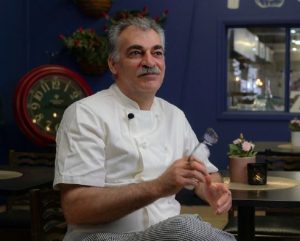Refugee business loans creating opportunity
Over six years, more than 400 refugee and asylum seekers have been supported to start businesses by Micro-finance provider Thrive to the tune of $5.5 million, the organisation’s annual report reveals.
The report shows Thrive is continuing to support refugees and asylum seekers to start their own businesses with $1.43 million provided to 62 refugee and asylum seeker entrepreneurs in the past year.
These businesses are expected to generate more than $5.7 million, or an average of $92,000 each, in revenue each year, the report says.
The businesses, who received an average loan of around $23,000 each, were selected from more than 500 applications.
The business with the highest revenue was a grocery store in Brisbane with $608,000 in revenue.
“Over the next four years, we expect these businesses to generate around $23 million in revenue. This is not only a great outcome for these refugees and their families, but great for Australia,” said Thrive Co-Founder and Executive Chairman Huy Truong.
But during COVID lockdowns lending was somewhat curtailed.
“Whilst we would have liked to finance more applicants, we are careful to not provide financing to applicants who are not ready. Responsible financing is something we take seriously, given the inherent risks of small business and particularly when NSW and VIC had extensive lockdowns between July and November last year,” Mr Truong said.
“However, as we continue to work with many of these applicants on their plans, we expect that many more of these applicants will become business ready,” he said.
 Among the refugee entrepreneurs supported by Thrive, 85 per cent were male and 15 per cent were female. Thirty-six per cent were aged 41-50, 28 per cent were aged 31-40 and 26 per cent were 21 and 30.
Among the refugee entrepreneurs supported by Thrive, 85 per cent were male and 15 per cent were female. Thirty-six per cent were aged 41-50, 28 per cent were aged 31-40 and 26 per cent were 21 and 30.
Just over half, or 52 per cent, received government income support but with their business income, have started to reduce their welfare dependency if not stopped completely.
Around a third of Thrive clients were tertiary qualified and another third had completed high school.
Fifty-five per cent were from Syria and Iraq but there is a growing number of applicants from Afghanistan and Ukraine.
Most popular industries among Thrive’s entrepreneur clients are: commercial transport (38 per cent), food and beverage (10 per cent), building/maintenance (10 per cent) and commercial cleaning (8 per cent). Others include beauty services, retail and education and training services.
“What is common among all these successful applicants is an incredible work ethic with a fierce determination to provide for their families and achieve financial independence,” Mr Truong said.
Since being established in 2016, Thrive has provided financing of $5.5m and business support to 403 refugees and asylum seekers.
“We estimate that these businesses have generated over $27m in revenue income during that time with more to come. These businesses have employed other people (including other refugees), paid tax but most important of all, restored dignity, pride and hope to these families and their communities,” Mr Truong said.
He said that Thrive had identified two priority areas for future focus: loans to support for people of the Muslim faith and loans to women.
“Over the past year, it became apparent that a significant proportion of Muslim refugees were not able to use a financial product that incurred interest (no matter how small) if they were to be compliant with Sharia Law,” Mr Truong said.
“Having considered this issue as well as our broader mission to encourage more refugees to consider self-employment, we developed and launched a new product with 0 per cent interest in March. The product has been well received by refugees, community leaders and the settlement sector who all see the attractiveness of such financing,” he said.
Thrive is also launching a new Refugee Women in Business initiative aimed at increasing female refugee business owners from 15 per cent to 25 per cent.
“To achieve this, we have developed a 3-prong strategy: Developing more female friendly business opportunities within industries such as health care, education and commercial cleaning; Recruiting more female business development staff members that are culturally and linguistically empathetic, and; Sharing female success stories that are inspiring and encouraging,” Mr Truong said.












